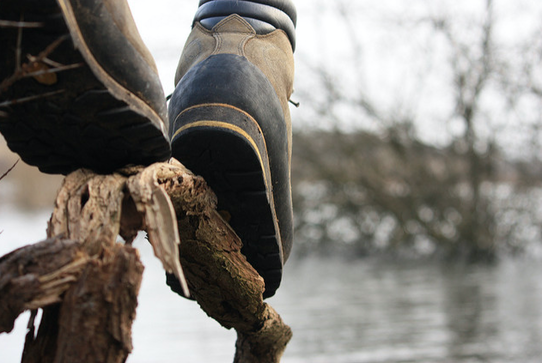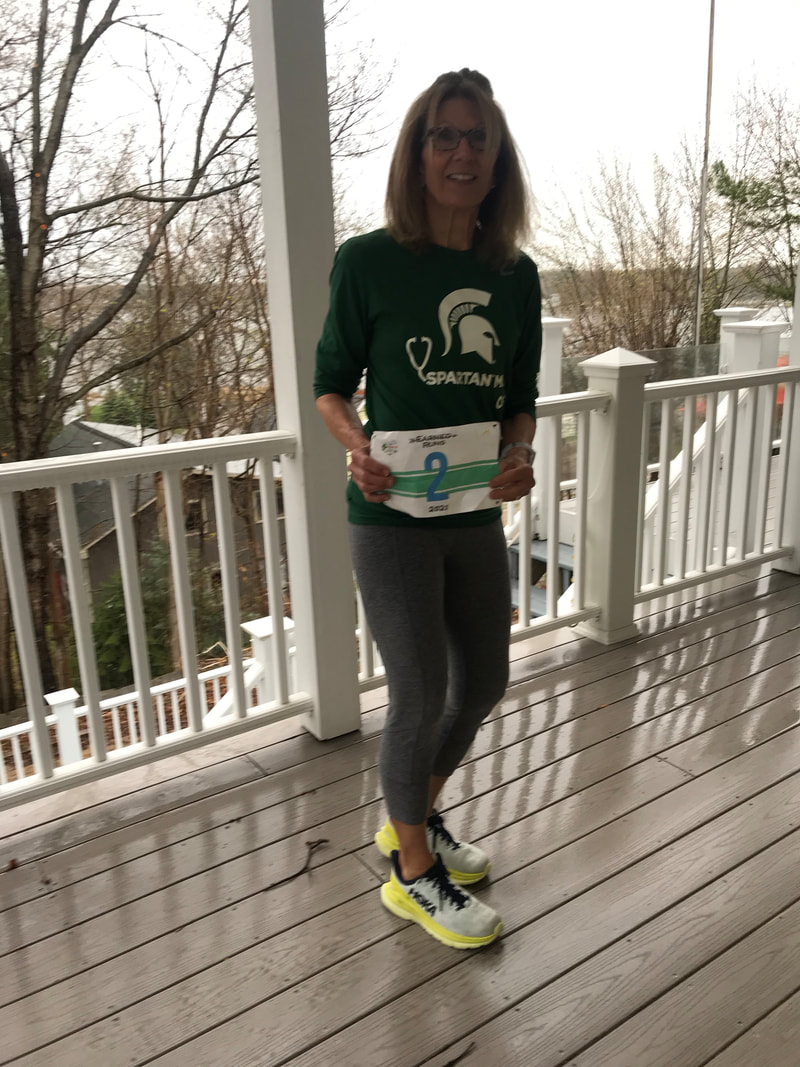BLOG
|
|
I HAVE HAD AN INTEREST IN PLANNING AND COMPLETING an epic adventure of some sort for the past three summers. Ever since a runner friend told me she and her sister had finally completed hiking the last segment of the Appalachian Trail. Beth declared it was an amazing experience and accomplishment. She explained that together the sisters had been sequentially hiking the segments of the Trail over 20+ years and this last adventure was a long time in coming.
I asked about the trip because she looked terrific and in total shape. As a runner, Beth is younger/faster than me and has the same sturdy and solid body. After the Trail hike, she looked lean and finely muscled. The difference she said, was possibly because they had had to carry their own food and fluids in backpacks, so only the essentials were taken. Their trip was self-designed, not organized by a company that waited at day’s end with a sumptuous meal. It was ‘Earned Runs for hikers’. I started exploring this idea the summer of 2015, but have yet to determine what might be attempted (and successfully completed). Since mid-summer 2017 I’ve been recovering from a running injury; even walking moderate distances has been challenging. Thus, my adventure probably will not involve running; anything epic would risk re-injury or worse, since “loaded running” with a backpack would be required. Which leaves walking, backpacking, and biking (possibly with an e-bike) as top contenders. Organized walking/hiking and cycling adventure trips are advertised that employ guides and support crews. The prices are budget busting and advance registration is required. Just as with organized running events, there is always the risk of needing to drop out of a trip that is scheduled 12 to 6 months in the future. If a buddy/partner is a must for double occupancy rates, the risk is compounded. So, before putting big money down for a first-time epic adventure it seems best to plan one or more shorter distance, DIY, less-than-epic, practice trips of a few days duration. Backpacking seems ideal if daily crew support won’t be available. I don’t know If I can find a partner for the first trip; it might need to be a solo experience, although I would prefer company. The scenery may be less than epic for such short trips. So how to motivate myself for what might be boring practice runs? Photography. I recently ran across a product offered by Huckberry.com, “The Adventure Photography Workshop” developed by National Geographic professional Alex Strohl. Some but not all adventure photography is focused on capturing images of outdoor sports; Strohl’s images are not confined to depicting extreme athletic feats and include a variety of beautiful and awe-inspiring scenes. In the promotional video, he says will demonstrate how to create “strong” images “that withstand the test of time”. Strohl promises to talk about ‘what it means to be yourself” and stand apart from what others are doing, using a few “tools”. One camera and one lens, is what I think he will be employing in the lessons. His YouTube video indicates that the purpose of the workshop is to teach professional adventure photography. The goal is having students attract paying clients “by the end of the month”. However, Strohl’s underlying message seems to be more inspirational and passionate than commercial. His approach to photography is like that of an athlete to a sport. To be better at it is to be “stronger”. “We’re all unique” he explains, and “have had different upbringings, so there’s no reason your photos should look like anybody else’s.” “Stop using other’s pre-sets” he urges. “Motivation is like a muscle and you must train it.” “Every day you take actions toward this big picture”. After watching the video, it occurred to me that photography could be a component of my short distance hikes (or bike rides), that not only could I practice backpacking/cycling before embarking on an epic adventure, but photography as well. Using my phone camera or one like the workshop promotes. I could learn to cover miles carrying the essentials of nutrition as well as photography. Become ‘lean and mean’ with a camera, while exercising and developing a strong personal style, before heading out on the big adventure. The downloaded workshop is expensive (depending on your perspective), $249 on the Huckberry.com site (regular price $300). There are free articles from other sources that offer professional tips that can be found online. Incorporating photography into my epic adventure will require more thought before taking action. It could significantly change the times of day I would be out and about; sunrise and sunset are best for picture taking with my phone camera. It would definitely influence the route selection. Starting small would seem to be the wisest course. Perhaps I’ll train to backpack a half marathon over familiar roads and use my phone camera to test the concept. That should be a small enough scale for a trial run. RUN & MOVE HAPPY! https://huckberry.com/store/alex-strohl/category/p/53665-the-adventure-photography-workshop https://workshop.alexstrohl.com https://en.wikipedia.org/wiki/Appalachian_Trail https://www.outsideonline.com/2157421/best-adventure-photography-exposure-2017 https://www.instagram.com/alexstrohl/ https://www.outdoorphotographer.com/tips-techniques/nature-landscapes/
0 Comments
Your comment will be posted after it is approved.
Leave a Reply. |
BRIDGE TO PHYSICAL SELF
Running, walking, and fitness activities enable us to experience our physical selves in a world mostly accessed through use of fingers on a mobile device. AuthorEARNED RUNS is edited and authored by me, runner and founder. In 1978 I began participating in 10K road races before 5Ks were common. I've been a dietitian, practiced and taught clinical pathology, and been involved with research that utilized pathology. I am fascinated with understanding the origins of disease as well as health and longevity. Archives
November 2023
CategoriesNew! Search Box
Earned Runs is now searchable! Check it out...
|


 RSS Feed
RSS Feed